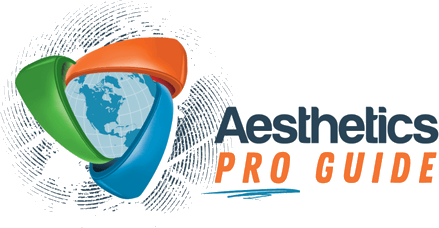
Data security is a critical concern for businesses across all industries, and the aesthetics sector is no exception. While compliance with regulations like HIPAA (Health Insurance Portability and Accountability Act) is crucial for protecting sensitive patient information, medspa owners must also be vigilant about all aspects of data security to safeguard their clients' privacy and maintain trust. Utilizing appropriate medical spa management safeguards both you and your clients against numerous security threats. Let's explore additional measures that medspa owners can take to enhance data security.
Two-factor authentication (2FA) presents a powerful solution to common security challenges faced by medspa owners. By requiring a second form of verification beyond just a password, 2FA dramatically reduces the risk of unauthorized access, effectively safeguarding against potential hacking attempts. This added layer of security ensures that even if passwords are compromised, critical and confidential client information remains protected. Implementing 2FA is a proactive step towards maintaining the integrity of client data and upholding the trust that clients place in their medspa providers.
Medspas often process payments for services and products, which involves handling sensitive financial information. Compliance with PCI DSS ensures that credit card data is securely stored, processed, and transmitted. Implementing PCI DSS-compliant payment processing systems and adhering to best practices for secure transactions can mitigate the risk of data breaches and protect both the business and its clients from fraud.
Maintaining a secure Wi-Fi network is essential for preventing unauthorized access to sensitive data. Medspa owners should implement strong encryption protocols, regularly update network equipment, and restrict access to authorized personnel only. Additionally, endpoint security measures such as antivirus software, firewalls, and device encryption help protect against malware and unauthorized access to devices like computers, tablets, and smartphones used within the spa.
Human error is often a significant factor in data breaches. Providing comprehensive training to staff members on data security best practices, including good password management practices, recognizing phishing attempts, and handling sensitive information, can significantly reduce the risk of insider threats and accidental data leaks. Implementing strict access controls also limits employee access to only the information and systems necessary for their roles, further minimizing the potential for unauthorized data access or misuse.
Encrypting sensitive data both at rest and in transit adds an extra layer of protection against unauthorized access. Electronic medical records should utilize encryption protocols to safeguard patient information. Also, regular data backups ensure that critical information is not lost in a security breach, hardware failure, or other unforeseen incidents. There is one medical aesthetics software platform, that stands strong in this field. At AestheticsPro, all electronic transactions are encrypted with 256-bit encryption, the same as the US Government, ensuring that your data is protected from the moment of entry.
Many med spas rely on third-party vendors for services such as cloud hosting, software solutions, and payment processing. It's essential to vet these vendors carefully and ensure they adhere to stringent security standards. Conducting regular security assessments and audits of vendor systems and practices can help identify and address any potential vulnerabilities or compliance gaps that may pose a risk to the security of your spa's data.
As the aesthetics sector increasingly grapples with the importance of data security, it's evident that merely complying with regulations like HIPAA is insufficient to protect sensitive client information. In this pursuit, medspa owners are urged to adopt a multifaceted approach, bolstered by measures such as two-factor identification, PCI DSS compliance, secure Wi-Fi networks, employee training, encryption, and vigilant vendor management. These proactive steps not only fortify defenses against potential breaches but also reinforce the trust and confidence clients place in their medspa providers. By prioritizing comprehensive data security practices, medspa establishments can safeguard both their reputation and the privacy of their clientele, ensuring the integrity and longevity of their business endeavors.
Today's medspa clients are savvier than ever. They want visible results–quickly–and they're actively seeking out treatment combinations that maximize...
As the medspa industry continues to grow, business owners face various challenges that can directly impact their bottom line. One significant challenge that could...
Pop-up Botox bars at weddings? Check. In-suite facials at five-star resorts? Absolutely. Welcome to the glamorous new frontier of mobile aesthetic services...
Every bride and groom want to look and feel their best on their big day. From glowing skin to sculpted physiques, medspa treatments can be the perfect way...
Today's clients aren't just looking for a workout routine–they want comprehensive solutions that help them achieve their ideal physique. As a medical spa owner...
In today's digital world, social media has transformed the way businesses connect with potential clients, and the aesthetics industry is no exception. Medspas and...


AestheticsPro - Bringing you 15 years of industry experience and
resources to guide your practice to success."